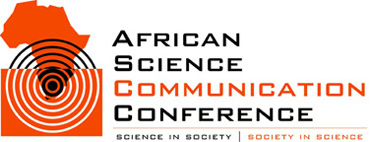Delegates at the African Science Communication Conference can look forward to the following plenary speakers:
- Mr Mosibudi Mangena, the Minister of the National Department of Science & Technology, South Africa. Holding a Masters Degree in Applied Mathematics from the University of South Africa (UNISA), this seasoned politician is also the author of four books.
- Mr Sudeep Banerjee, from the Ministry of Human Resources & Development in India, has contributed extensively to both literacy and communication programmes in India. Also an author, he has been on the boards of several institutions connected to education.
- Prof Mamokgethi Setati is passionate about development. The current National President of the Association for Mathematics Education of South Africa (AMESA), counts as one of her accolades a Prestige Award from RCP Media for being one of the ten most Inspirational Women Achievers.
- Prof Wilmot James’ extensive background in research, education, media and the political sphere ensures an engaging presentation. He is the Executive Director of the Africa Genome Education Institute, and as a testimony to his varied field of interest, is also the Chairman of the Cape Philharmonic Orchestra.
Abstracts update
Apart from good representation from South Africa, approved abstracts (often more than two abstracts per country) from the following countries include:
India, Kenya, Nigeria, Senegal, Sweden, Lesotho, Ghana, Zimbabwe, Uganda, United Kingdom, United States of America, Zambia, The Netherlands, and Botswana. In total 58 papers, three workshops and four poster presentations have been approved.
Themes emerge
The programme committee was able to group the abstracts according to the following themes:
- Innovative approaches of sharing science with communities;
- Using ICT to share science;
- Public engagement, dialogue & debate;
- Academic aspects of science communication;
- Scientists’ involvement in science communication;
- Policy & regulation in public engagement;
- Media & journalism;
- Unique African aspects; and
- Skills development workshops.
Watch out for our next newsletter to read more about the workshop aspect of the conference.
Until then: visit www.saasta.ac.za/ascc and register!
Highlighting Africa
In building a case for science communication that responds to the needs of Africa; the conference will ask questions such as:
-
How do we highlight the value of Africa’s unique assets in science and technology?
• How do we promote Indigenous Knowledge Systems as areas of research?
• How do we integrate public engagement in research and science policy in Africa?
• How do we build a case for science communication as an essential tool for African researchers and policy makers?
• What are the most effective methods to achieve public engagement with science and technology?
Join us in answering these questions – and maybe a few of your own – in South Africa, December 2006!
The conference further aims to:
- Bring together Science Communication role players and representatives from African countries and internationally to develop the field of Science Communication in Africa and forge/strengthen collaborative networks on the continent;
- Showcase good practice and examples from Africa;
- Establish Africa as an international role player in the field of Science Communication; and
- Provide opportunities for skills transfer in the area of Science Communication
|

